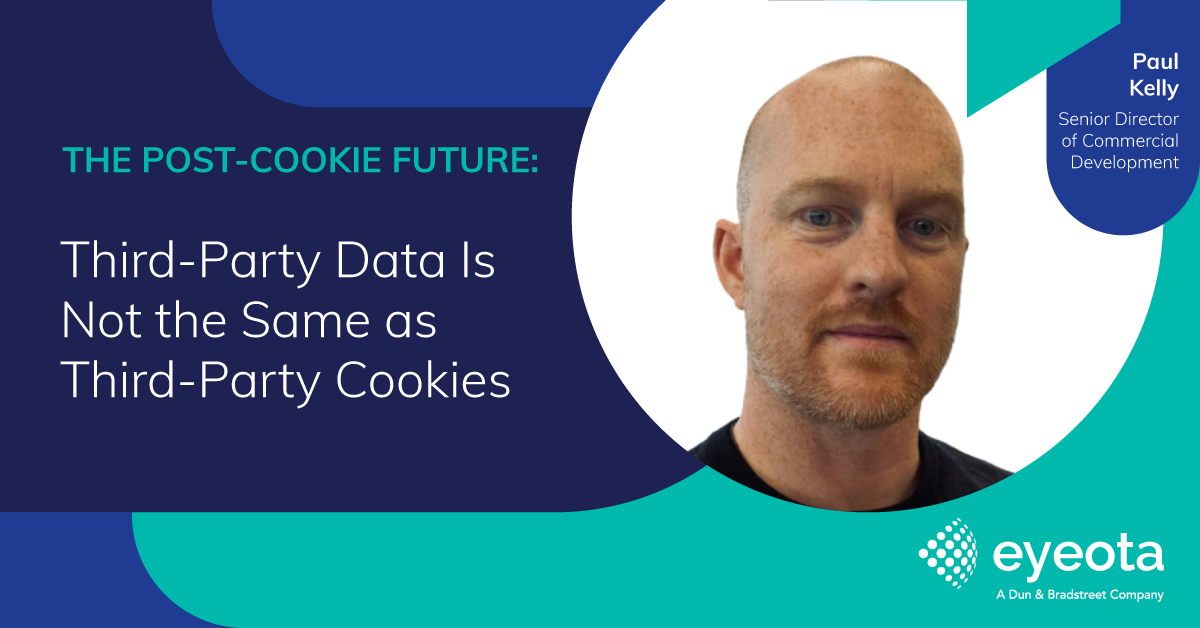As we prepare for a post-cookie marketing landscape, there’s something we need to get straight: Third-party cookies are not the same as third-party data. However, here at Eyeota, we’re still hearing quite a bit of confusion on that point. So let’s talk about why the distinction between third-party cookies and third-party data is so important, as well as why quality third-party data is a more vital piece of sustainable marketing programs than ever before.
Why the Confusion?
The confusion between third-party cookies and third-party data, no doubt, stems in part from the similarity in the phrases themselves. But it’s more than that. The flurry of headlines within our industry over the past few years has most certainly caused some additional confusion, so let’s be clear:
- After multiple delays, Google is planning to deprecate the third-party cookie in Chrome by 2024. Given the size of Chrome’s influence in the market, this has caused a great deal of concern among industry parties that rely on third-party cookies as a means of targeting their digital media buys to individuals across online environments. That said, support for third-party cookies has already been eliminated in a number of other browser environments. Google’s move is just the final nail in the third-party cookie’s coffin.
- Concurrently, a number of global privacy regulations have recently or will soon go into effect that have implications for how organizations can collect, use and distribute users’ personal information. It is in the conversations surrounding these regulations that implications for third-party data practices are commonly discussed.
One challenge is that, in discussing the effects of new privacy regulations, our industry has begun to repeat a common false narrative: “First-party data is good. Third-party data is bad.” But that’s simply not correct. In fact, any marketer turning away from third-party data right now is going to be more challenged than ever to succeed in the marketing landscape of the future.
Why Third-Party Data Matters More Than Ever
Even after third-party cookies are deprecated once and for all, companies will still require privacy-compliant access to third-party data in order to connect with their customers and prospects in a meaningful way. In a post-cookie world, third-party data will prove vital to enabling the following processes:
- Data onboarding, which uses privacy-safe third-party data to transform marketers’ first-party data assets into powerful digital audiences to reach new customers, enhance marketing analytics, deepen insights and boost omnichannel campaign performance
- Data enrichment, which enables brands to model and enhance their first-party data assets with qualified third-party data for insights, personalization and targeting
- Data expansion, through which brands with a rich seed of first-party data can expand reach by using a look-a-like product
Today’s organizations need to be evolving their third-party data strategies in order to be prepared when third-party cookies vanish altogether. So let’s do ourselves a favor and stop creating confusion where none should exist. Third-party cookies are not the same as third-party data. And when the former disappears, the latter will represent the path forward.
Eyeota is helping data-driven marketers navigate the post-cookie world. Want to know how we can help? Contact our audience specialists at datadesk@eyeota.com for more information.
